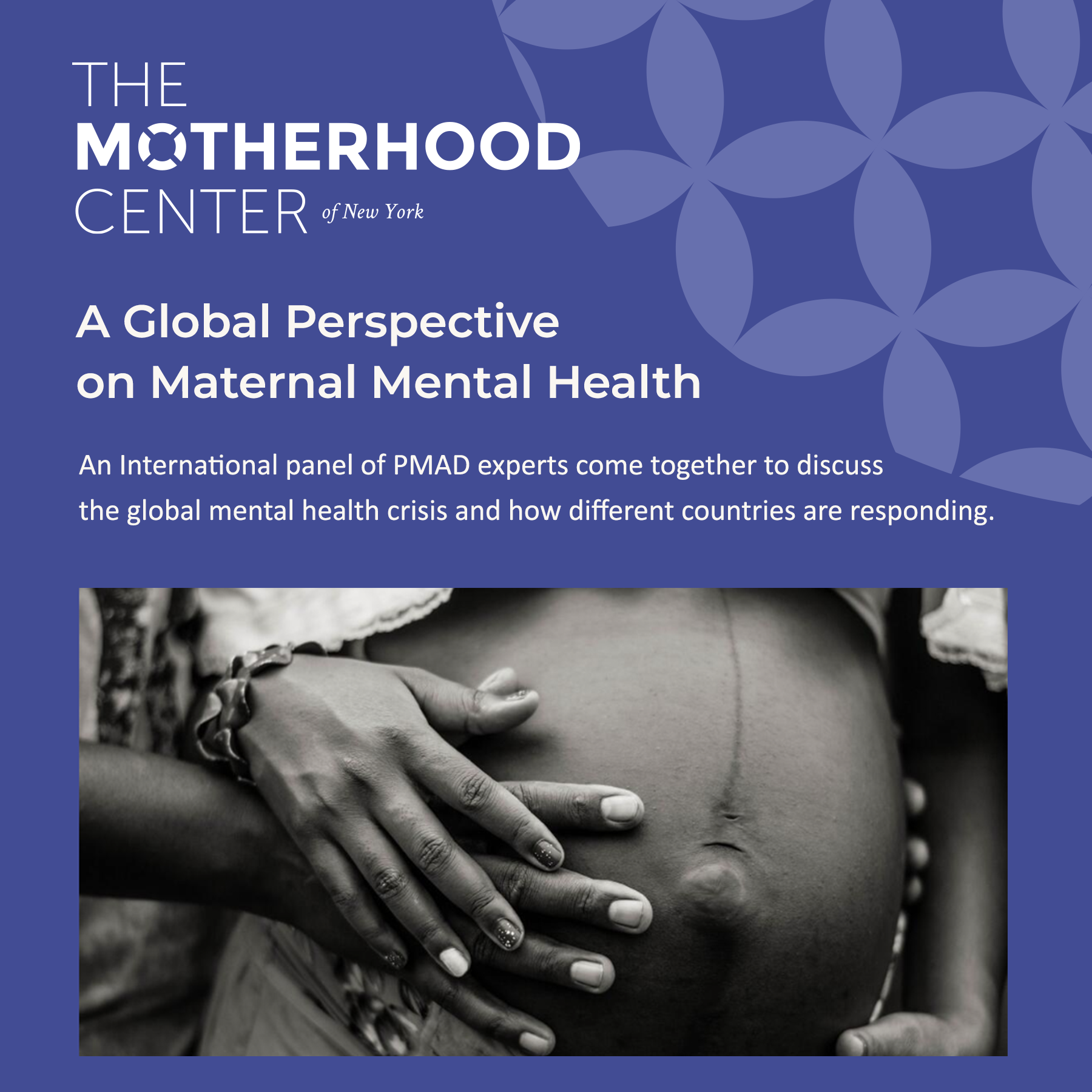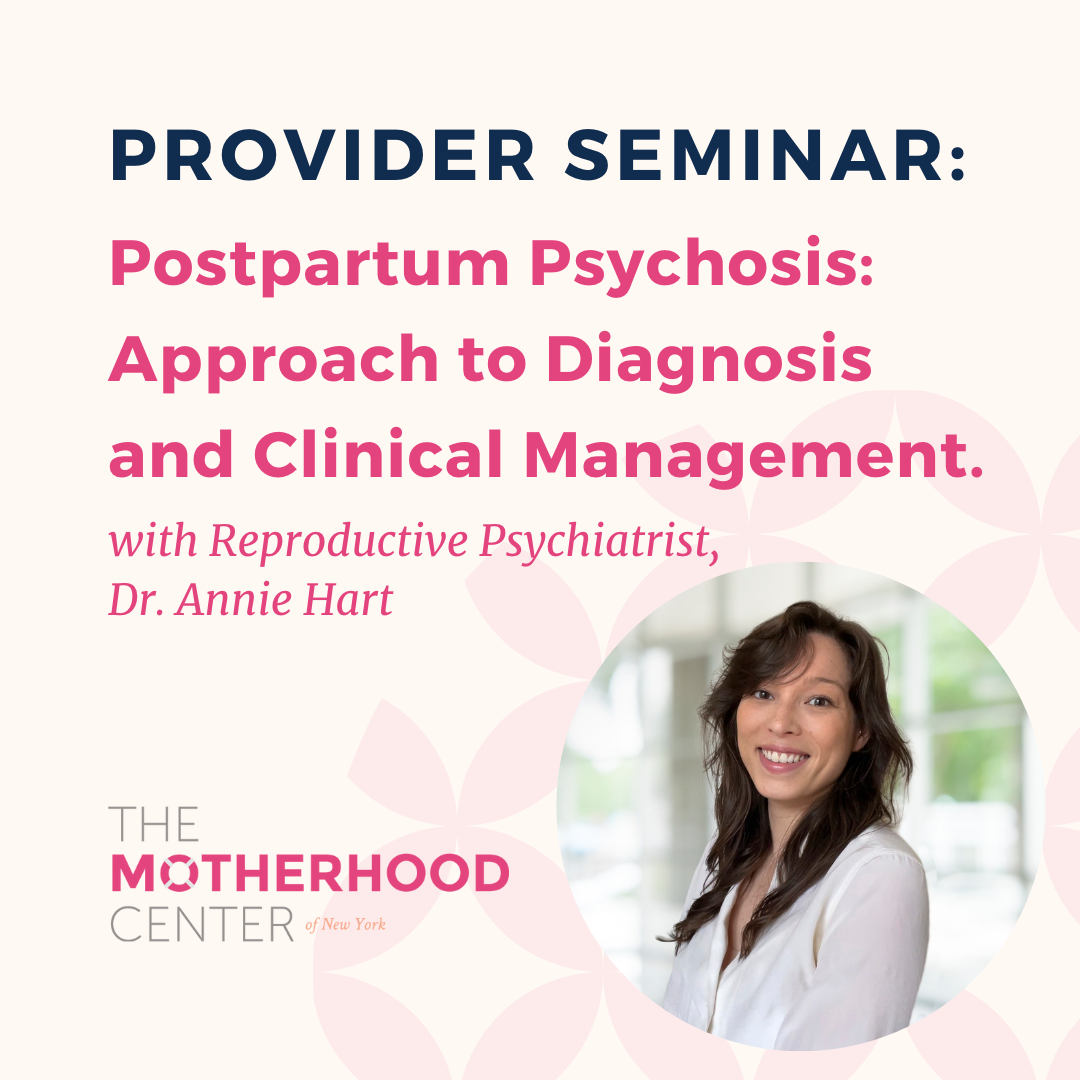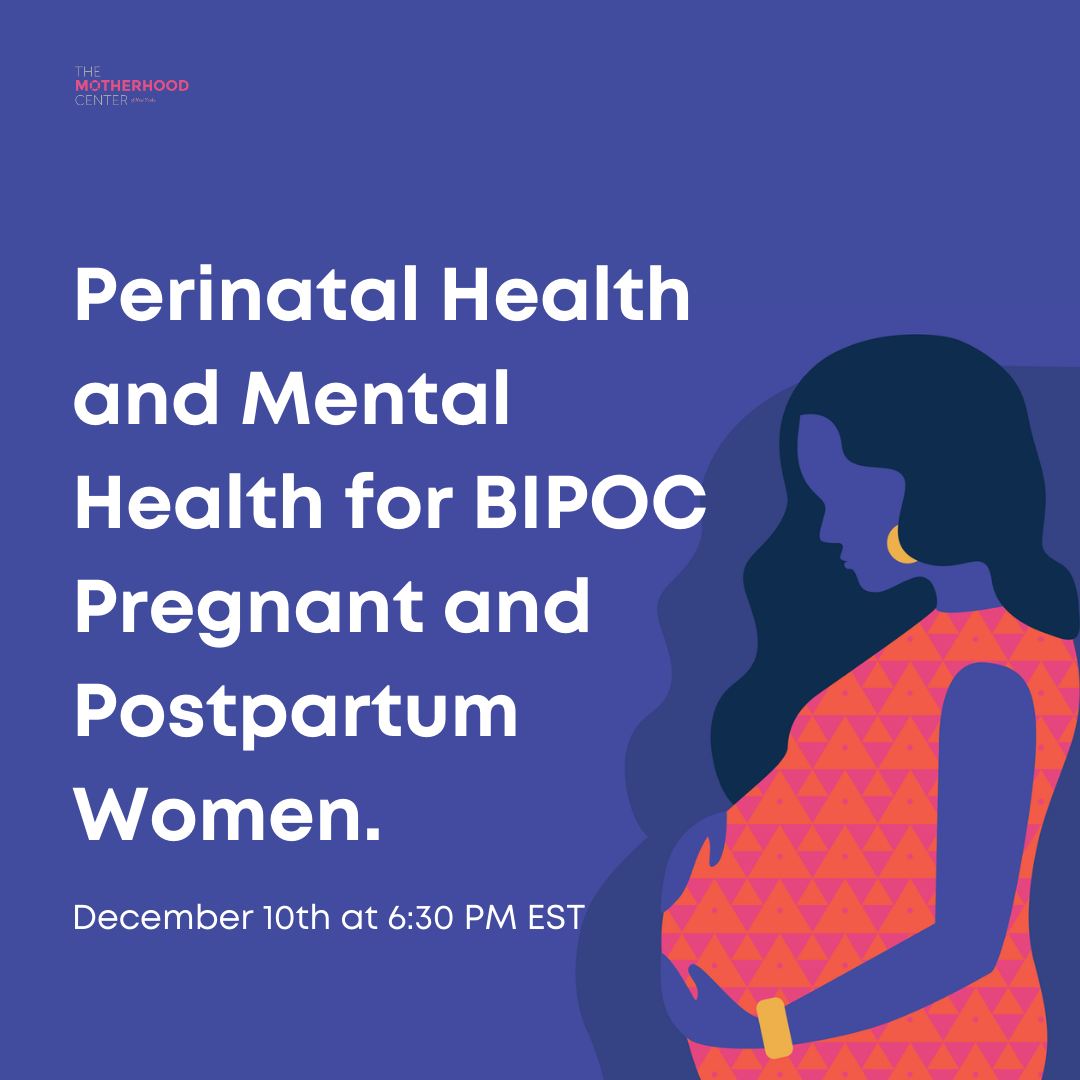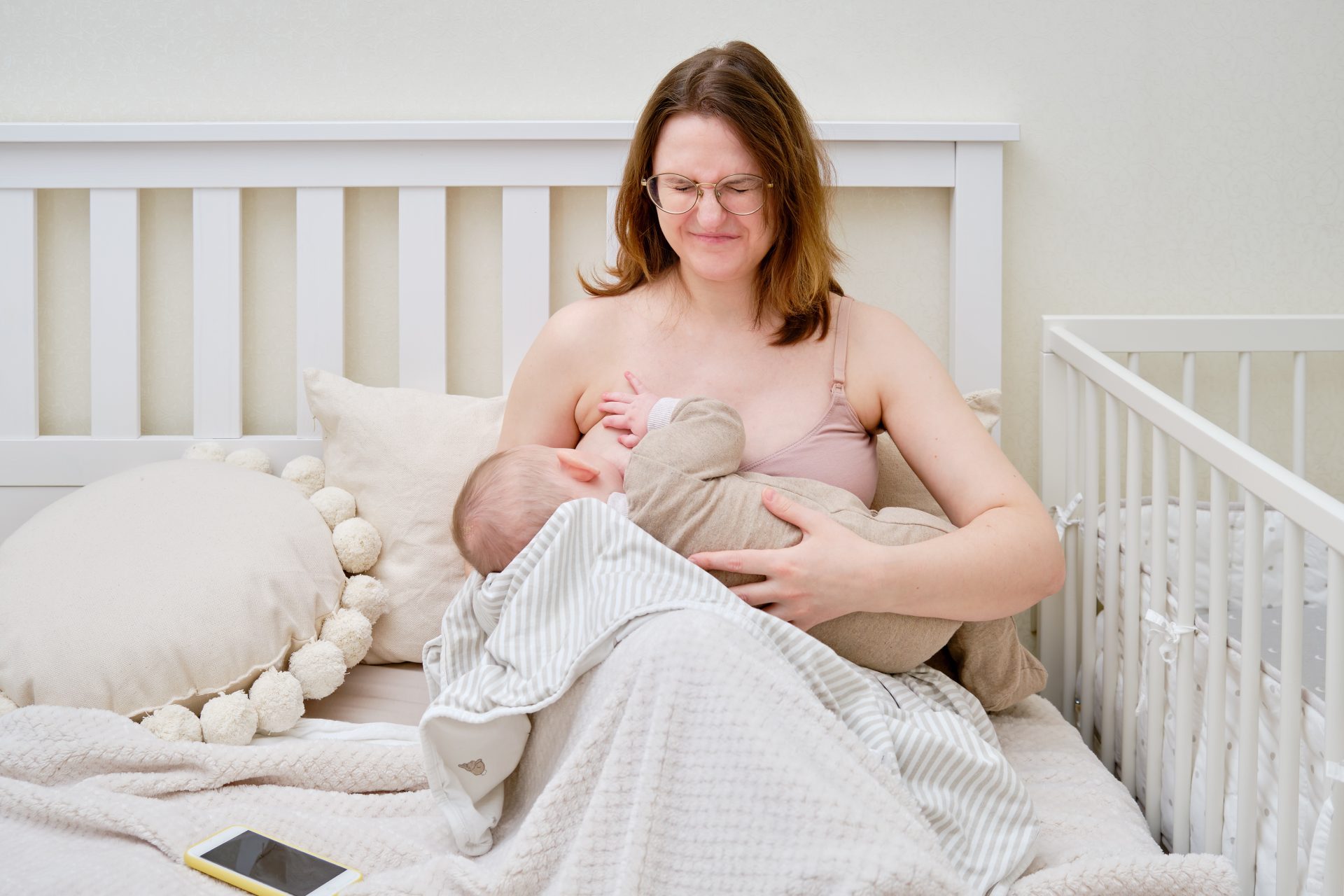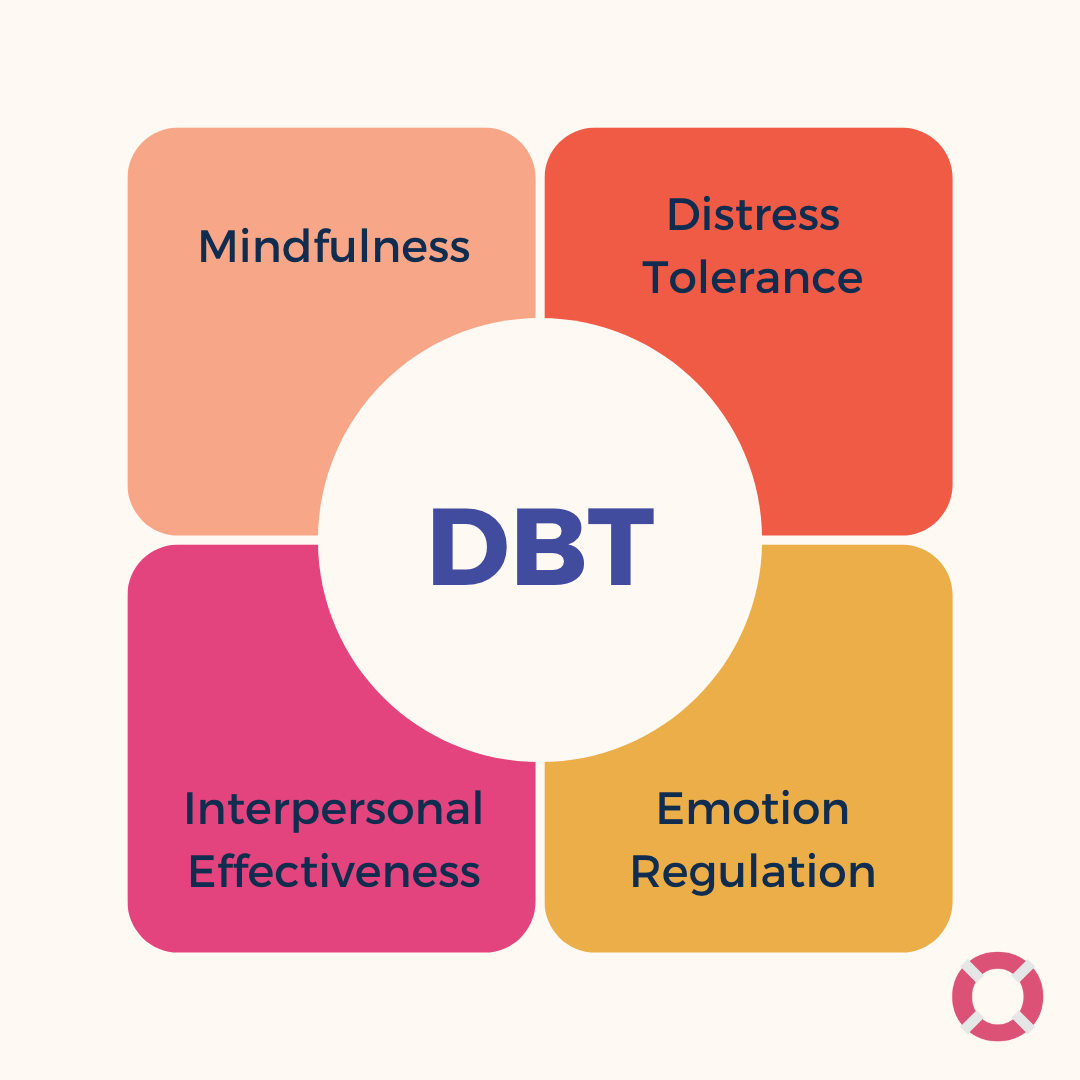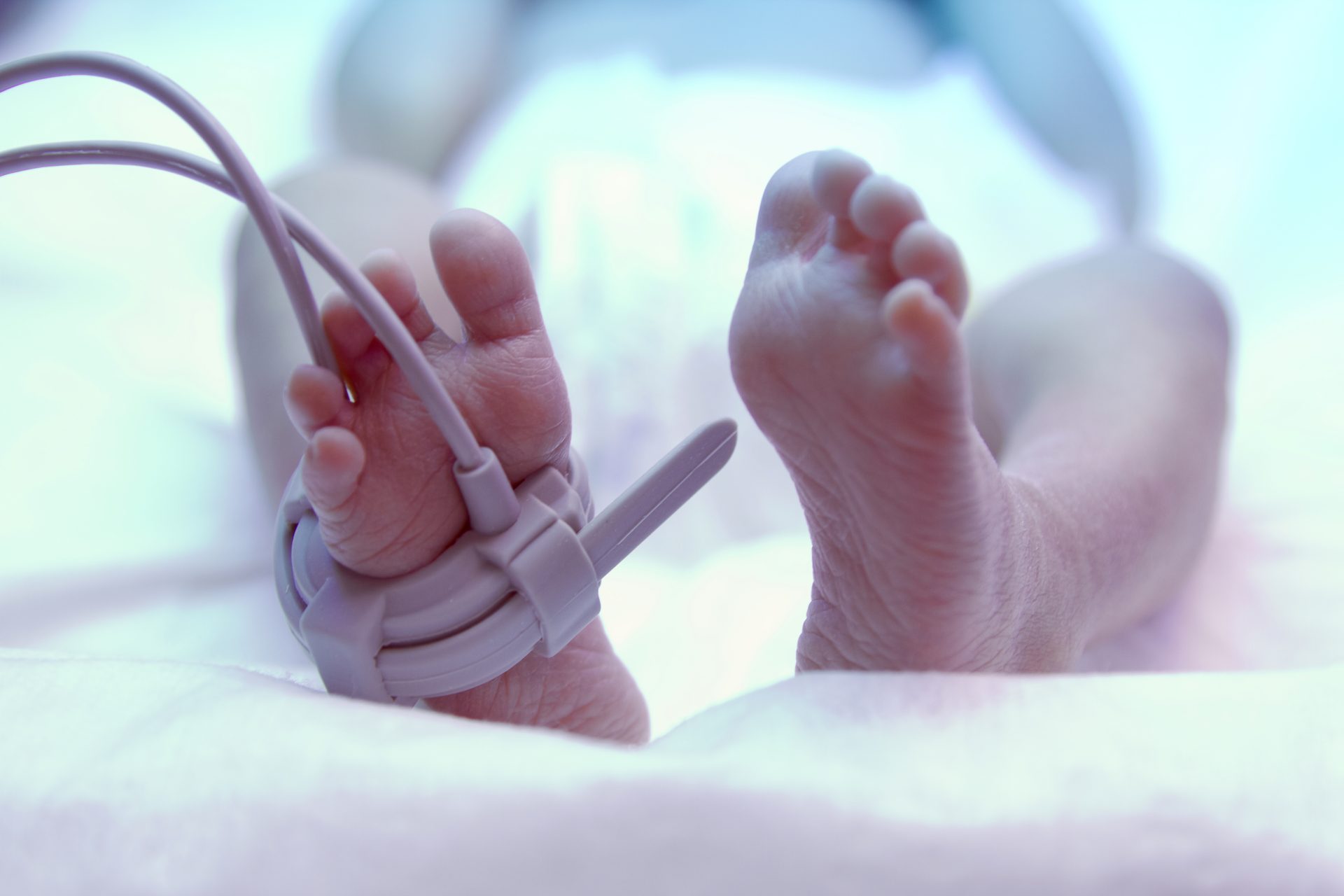Provider Seminars
The Motherhood Center offers seminars to providers on topics that are relevant to maternal mental health. Join our provider newsletter to receive updates on upcoming seminars!
Spotlighted Seminars
A Global Perspective on Perinatal Mental Health
Worldwide, perinatal mood and anxiety disorders (PMADs), also known as postpartum depression, are the #1 complication associated with childbirth. Since the pandemic, research suggests that as many as 72% of all new and expecting mothers and birthing parents experience perinatal depression and/or anxiety. PMAD education, screening, and treatment for this vulnerable population does not...
Treating PMADs with Safe and Effective Medication
Perinatal mood and anxiety disorders (PMADs) are a common complication of pregnancy and the postpartum period, with research suggesting that 1 in 5 pregnancies are impacted by PMADs. Struggles with mood and anxiety disturbance in the perinatal period can have negative ramifications for pregnancy outcomes, as well as disrupt maternal-infant attachment. Despite these known...
Postpartum Psychosis: Approach to Diagnosis and Clinical Management
Postpartum Psychosis is a serious illness that affects approximately 1 – 2 out of every 1,000 women following childbirth. Although less common than other perinatal mood and anxiety disorders, Postpartum Psychosis is a psychiatric emergency that carries the risk of suicide and infanticide. Watch the recording of Dr. Annie Hart's, Reproductive Psychiatrist at The Motherhood...
Our Past Seminars
Perinatal Health and Mental Health for BIPOC Pregnant and Postpartum Women
This discussion, moderated by TMC Perinatal Psychologist Dr. Roshnee Vázquez Barrett, features experts on health and mental health disparities for BIPOC pregnant and postpartum women. This webinar provides information on the barriers that prevent BIPOC women from receiving appropriate health and mental health care in the perinatal period, how to identify and advocate for...
How the ‘exclusive-breastfeeding movement’ is impacting mother’s mental health
Breast May Not Always Be Best: how the ‘exclusive-breastfeeding movement’ is impacting mother’s mental health. In the 1970s, 75% of mothers chose to formula-feed their babies. Today, the pendulum has swung, and there is a push to increase breastfeeding rates. The World Health Organization’s 2025 goal is for 50% of babies to be exclusively breastfed...
Reproductive Identity: What is it and Why is it Important?
Reproductive identity is a new concept and important addition to standard training on diversity, equity, and inclusion. We live in a major “age of change” when it comes to deciding whether or not to become a parent. Thanks to advances in reproductive medicine and social norms, people of all genders and sexualities can now...
Dialectical Behavior Therapy (DBT) Psychotherapy Interventions in the Perinatal Period
The perinatal period is associated with dysregulation of cognition, emotions, behavior, interpersonal relationships, and sense of self. Dialectical behavior therapy (DBT) was initially developed to target dysregulation across these five areas for individuals with multiple, complex problems and has been adapted for intervention with many populations in which emotion dysregulation and emotion over-control are...
The Emotional Experience of NICU Parents and Tailored Interventions
Preterm birth is an unresolved health issue across both developing and industrialized societies and is the world’s leading cause of neonatal mortality. Parents of preterm infants hospitalized in the NICU often experience stressful reactions to their labor, delivery, and their subsequent NICU stay and are thus at greater risk of developing depression, anxiety, and...
Involving Partners in Perinatal Mood and Anxiety Disorder (PMAD) Treatment
Dads and partners play a critical role in both recognizing PMADs and helping their spouses get the help they need to feel better. Including partners in PMAD education and treatment can make all the difference in a new or expecting mom’s ability to access the clinical care she needs to feel better. In this...



